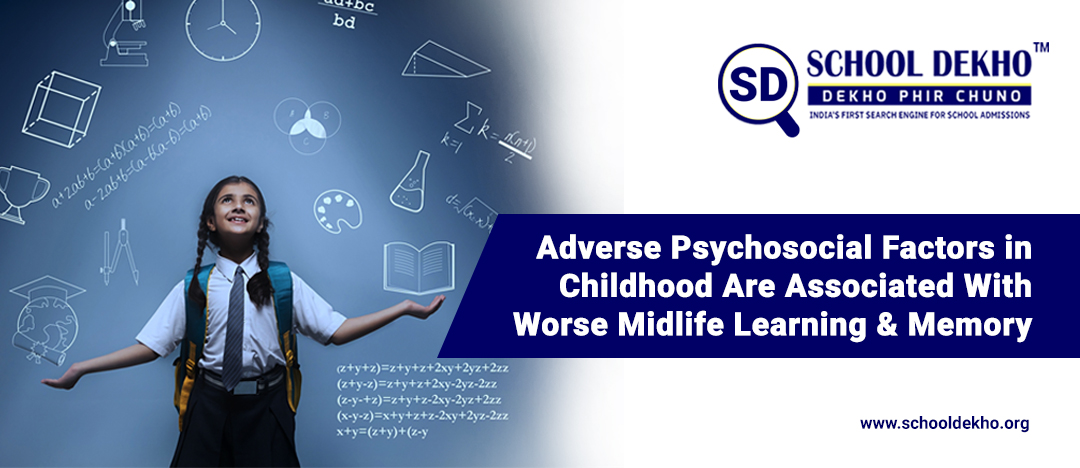Adverse Psychosocial Factors in Childhood Are Associated With Worse Midlife Learning and Memory

Childhood is a formative period that plays a crucial role in shaping an individual's physical and mental health throughout life. Recent research has shed light on the long-term impact of adverse psychosocial factors experienced during childhood, particularly how they can influence midlife cognitive health, including learning and memory.
Psychosocial factors encompass a wide range of experiences and conditions that affect an individual's psychological and social well-being. These factors can include adverse childhood experiences such as trauma, neglect, abuse, family dysfunction, and socioeconomic disparities. While the immediate effects of such experiences are well-documented, their lasting consequences on cognitive health are now garnering attention.
One of the most critical aspects of cognitive health is learning and memory. Learning encompasses the acquisition of new information and skills, while memory is the ability to store and retrieve that information. Both processes are fundamental for daily functioning, professional success, and overall quality of life.
Recent studies have shown a compelling link between adverse psychosocial factors in childhood and compromised learning and memory abilities in midlife. Here are some key findings:
- Cognitive Reserve: Adverse childhood experiences can hinder the development of cognitive reserve, which is the brain's ability to withstand age-related changes and neurological diseases. A deficit in cognitive reserve can lead to a decline in learning and memory abilities as individuals reach midlife and beyond.
- Chronic Stress: Prolonged exposure to stress during childhood can lead to chronic stress responses that persist into adulthood. Chronic stress is associated with structural and functional changes in the brain, particularly in regions responsible for learning and memory, such as the hippocampus. These changes can impair cognitive functioning.
- Mental Health Impact: Adverse psychosocial factors can contribute to mental health issues, including depression and anxiety. These conditions often co-occur with cognitive impairment and can further exacerbate learning and memory difficulties in midlife.
- Health Behaviors: Childhood adversity can also influence health behaviors in adulthood, such as poor diet, lack of physical activity, and substance abuse. These behaviors have been linked to cognitive decline and impaired memory.
- Epigenetic Changes: Adverse childhood experiences can lead to epigenetic changes—alterations in gene expression that do not involve changes to the underlying DNA sequence. Epigenetic modifications can influence cognitive function and contribute to learning and memory deficits.
It's important to note that the effects of adverse psychosocial factors in childhood are not deterministic. Many individuals who experience such adversity go on to lead successful and cognitively healthy lives. Resilience and protective factors, such as a supportive environment, access to education, and positive social relationships, can mitigate the impact of early-life challenges.
Additionally, interventions and support systems can play a crucial role in promoting cognitive health in individuals who have experienced adverse psychosocial factors during childhood. These interventions may include therapy to address trauma, stress management strategies, and lifestyle modifications that promote brain health.
In conclusion, adverse psychosocial factors experienced during childhood can have lasting consequences on cognitive health, including learning and memory abilities in midlife. While these effects are a cause for concern, they are not insurmountable. Resilience, protective factors, and interventions can help individuals mitigate the impact of early-life challenges and promote cognitive well-being as they age. Recognizing the importance of addressing childhood adversity and its potential long-term effects on cognitive health is a critical step in ensuring a healthier and more prosperous future for individuals and society as a whole.
Contact with Us
Call: 1800 - 2588 - 074
Mail: info@schooldekho.org
Student’s Best Education Portal | School Dekho | India's First School Search Engine | Best Schools Near Me | Find Schools Near Me | Dekho Phir Chuno
#dekhophirchuno






